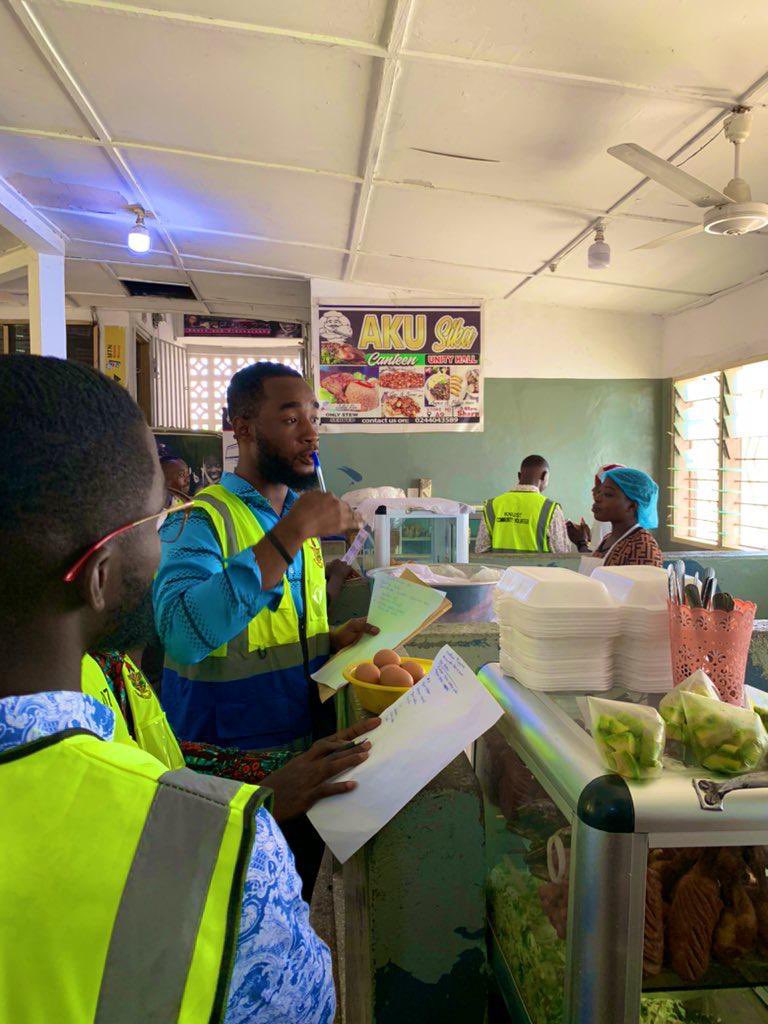The Student Representative Council (SRC) Welfare Commission, in collaboration with the KNUST Environmental Quality Unit, conducted a comprehensive food inspection within the university campus.
The primary objectives of this comprehensive food inspection were as follows:
1. To ensure the safety and quality of food served within the university campus.
2. To identify and rectify any potential health hazards associated with food preparation and handling.
3. To promote food hygiene and compliance with food safety standards among campus food vendors.
The inspection team, comprising members from the SRC Welfare Commission and the KNUST Environmental Quality Unit, followed a structured approach during the assessment. The methodology included the following steps:
1. Vendor Identification: A list of all food vendors operating on the KNUST campus was compiled.
2. On-Site Visits: Each food vendor's premises were visited, and a detailed inspection of their facilities, food handling practices, and hygiene standards was conducted.
3. Documentation Review: Relevant permits, licenses, and records related to food handling and storage were examined.

Based on the findings, the inspection team recommends the following actions to improve food safety and hygiene on the KNUST campus:
1. Hygiene Training: Mandate food vendors to undergo regular training on proper food handling and hygiene practices.
2. Sanitary Facilities: Ensure that food vendors have adequate sanitation facilities, including proper waste disposal systems and handwashing stations.
3. Regulatory Compliance: Enforce strict adherence to licensing and permitting requirements for all food vendors operating on campus.
4. Quality Control: Implement routine quality control measures to monitor food quality and safety.

The comprehensive food inspection conducted by the SRC Welfare Commission and the KNUST Environmental Quality Unit identified several areas for improvement in food safety and hygiene on the KNUST campus. It is imperative that these recommendations are implemented to safeguard the health and well-being of the university community. Regular follow-up inspections and collaborative efforts between the SRC, the Environmental Quality Unit, and food vendors will be essential to ensure ongoing compliance with food safety standards.
